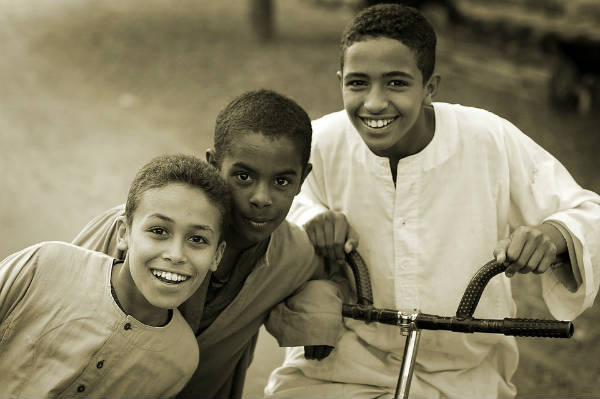In my spare time, I try to engage in
interactions with people and children in particular. I have observed some
fun-to-discuss-with children that positively draw the attention of the room,
peers and adults alike, and some not-so-fun children. These varying levels of
interaction are due to one thing: the social development of the child which in
turn defines the level of social skills a child has.

Ask a parent today what skills she/he
plans to teach his parents, social skills are probably going to be listed out
only as an afterthought. I believe this to be not the best course of action.
Social skills are as important as any other skill that might be listed, maybe
even more. Humans are social beings, depending on communication with other
humans. Effective and productive communication is achieved with highly
developed social skills. These skills are developed from childhood on. Some
benefits of having highly developed social skills include
- It improves a person’s communication skills with others.
- It helps to better one’s relationship.
- It increases efficiency.
- It helps to advance one’s career prospects.
- Most importantly, it greatly increases one’s overall happiness.
Since it is so important having
excellent social skills, there is a pressing need to teach this skill to our
children. There are a few tips that can help one to inculcate this skill in the
children:
- Create avenues for social interaction: The best way to learn a skill is to practice. In the same vein, children need a place to practice their social skills. The onus thus falls on the parents to create these scenarios. They can do this by inviting other children to their home and provide outings for their children, which will allow them to put into practice the tips they have learned. It can also help them get comfortable with regular human interactions, combating shyness as a result.
- Teach your children using words: Children can be very difficult to control at times and might often lash out when something goes wrong. Instead of just overlooking this as “one of those things children do” or spanking them, parents should try to calm the child and get him to talk about the issue. Children should be encouraged to talk to their parents about anything that is bothering them. This will help the child to develop good communication skills.
- Teach your children emotions: Children need to be able to identify a wide range of emotions. This can be done by playing a game called “Identify the Emotion” which involves using smiley cards or making faces and getting the children to identify the emotion. This will help them identify people’s emotions in real-time to tailor the discussion better and also to express their emotions properly. Parents should also make sure these emotions are not misread or misinterpreted by outlining examples that might bring about a show of such emotions.
- Discuss negative social scenarios: Your child will most likely face more than one socially awkward or draining situation. This can be discouraging for the child. If you notice that your child has had one of these, make sure to discuss it with her/him. You can give pointers on how to better handle the situation next time or just simply reassure the child. The aim is to raise the child’s spirit, not tear it down. So make sure to not overanalyse the situation or be extremely pushy if the child is not immediately forthcoming about the details of the incident. This would only make matters worse for the child.
- Teach your child manners: A key factor in being socially agreeable is to have good manners. This is what you should teach your child. Teach them to say ‘please’ when requesting something and to say ‘thank you’ when it is given to her/him. Teach them proper etiquette. Let them realise that the world does not revolve around them, and as such should be considerate to others. Don’t just teach them using words, let them also practice this starting from home and then in public.
- Praise your child: If you notice your child behaving amicably in social settings, remember to give positive feedback by praising the child. This will encourage the child to continue to behave in such a manner, thus making socialization less difficult. Be careful, however, not to offer insincere commendation as this will confuse right and wrong in the child’s head.
- Be a good example: Talking to your child about the above-listed points is good, but the child might as well ignore all your classes. The best way to teach your child is by using your examples. The popular saying rings true in this case which says “Action speaks louder than voice”. So be a good example for your children. Avoid doing in front of your child anything you wouldn’t want her/him to do and always try to constantly behave in the manner you want your child to behave. Surround your child with positive examples. This will make it considerably easier to inculcate good social skills in your child.
Take the time out to develop social skills in your children. It will definitely put them in good stead in the near future!
